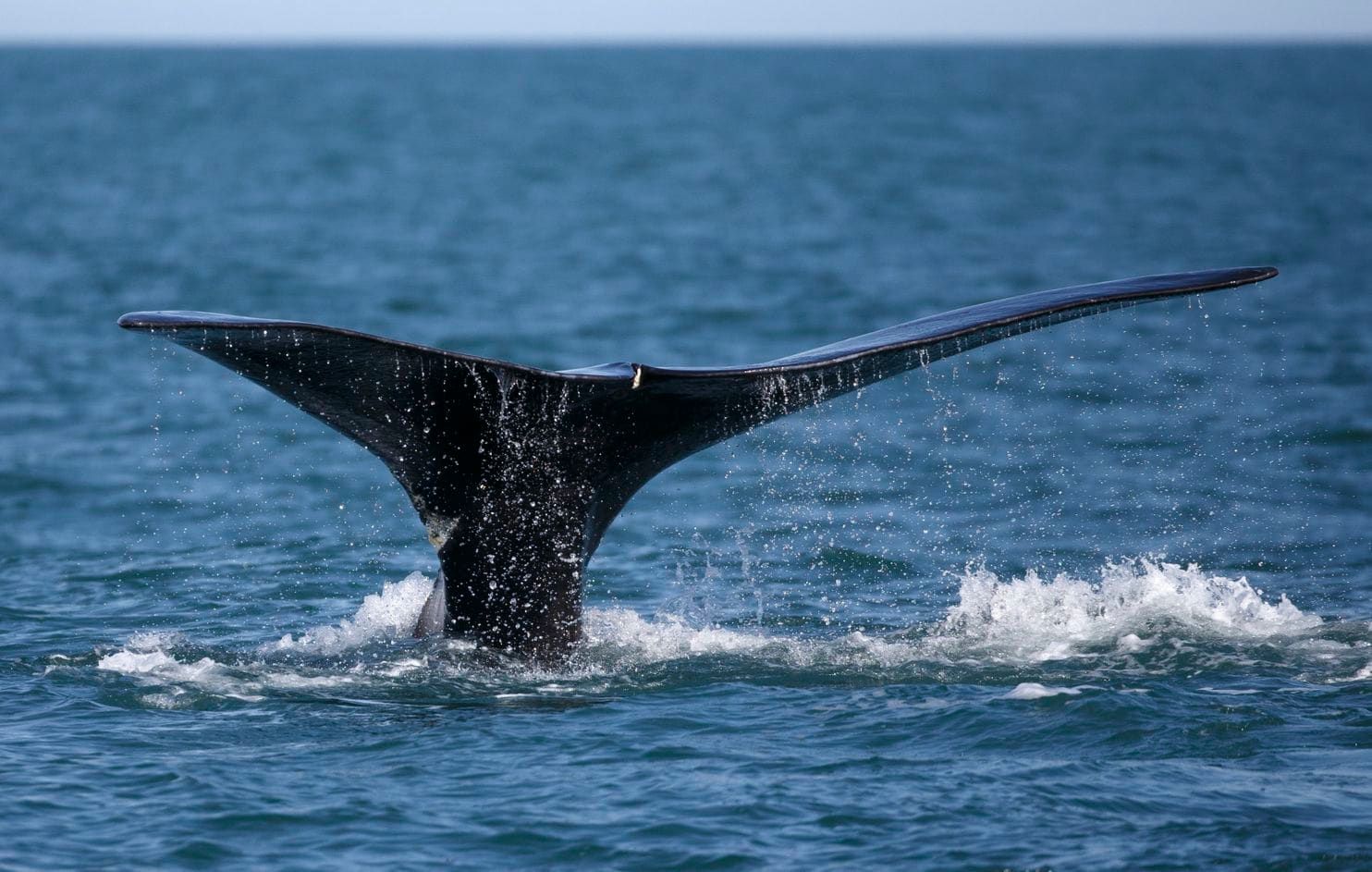
The Donald Trump administration approved five requests from companies that seek to conduct deafening seismic surveys off the Atlantic Seaboard that experts say could harm tens of thousands of dolphins, whales and other marine animals. The testing aids oil and gas drilling, and lobbyists for those industries praised the decision.
The National Marine Fisheries Service announced Friday it has issued authorizations allowing companies conducting seismic surveys in the Atlantic to harm wildlife "if it's unintentional," according to The New York Times.
Companies seek to drill for oil and natural gas, off the East Coast Seaboard, ranging from Delaware to Florida. Seismic testing maps the ocean floor to determine the estimated location of oil and gas.
Acoustic sound can harm and potentially kill marine animals, Katherine Brogan, National Oceanic and Atmospheric Administration spokeswoman, told The New York Times:
"NOAA Fisheries is clear in the documentation related to (incidental take authorizations) that we do not expect mortality to occur as a result of these surveys," she said. The NOAA oversees the National Marine Fisheries Service.
"Incidental take authorizations" is bureaucratic speak for permits allowing companies to go ahead with plans.
Federal leases could lead to exploratory drilling for the first time in more than a half-century.
Only a week ago, the day after Thanksgiving, the Trump administration released a damaging report projecting the severe economic and agricultural costs of climate change. Thirteen federal agencies support the 1,600-page report. Trump dismissed critics' accusation of the administration burying the report the day after a holiday, on Black Friday.
The fisheries service announcement comes just a week after the Trump administration released a new report by the U.S. Geological Survey showing that excavating and burning fossil fuels from federal land made up nearly a fourth of all carbon dioxide emissions in the United States over a decade ending in 2014.
Rep. Don Beyer (D-Va.) condemned the administration's actions in a Friday tweet.
"Since Donald Trump has decided to ignore the concerns of residents and stakeholders directly impacted by seismic blasting and offshore drilling," said Beyer, "it is time for Congress to step in and put a stop to this by passing my bill, the Atlantic Seismic Airgun Protection Act."
During the surveys, acoustic waves are sent through water 10 to 12 seconds apart to image the sea floor. Commercial fisheries are at risk, too, and governors along the Sea Board have said drilling can hurt beach tourism, as well.
In a statement Friday, the American Petroleum Institute, a lobbying group for the oil and gas industry, lauded the Trump authorizations.
"The U.S. needs to know what energy resources exist off of our shores and we are hopeful that permits for surveying for offshore oil and natural gas and a full national offshore leasing plan to explore and develop the outer continental shelf will move forward soon."
Rep. Raúl M. Grijalva (D-Ariz) blasted the administration's decision to permit acoustic testing as "an alarming sign of [its] indifference to the fate of coastal communities and marine life, including the endangered north Atlantic right whale."
Grijalva added: "There is nothing this administration won't do for the fossil fuel industry, including destroying local economies and ruining endangered species habitats."
Grijalva, the ranking minority-party member of the House Natural Resources Committee, is expected to take over as chair in the next Congress.
In 2016 and 2017, 20 Atlantic right whales died, reducing their numbers to only 400. The NMFS released a Nov. 15 statement explaining that North Atlantic right whales are protected under the U.S. Endangered Species Act and the Marine Mammal Protection Act. Scientists estimate there are just over 400 remaining, making them one of the rarest marine mammals in the world.
Consequently, NMFS begged with commercial fishermen not to harm the Atlantic right whales, who are now migrating south.
"We are very concerned about the future of North Atlantic right whales," Barb Zoodsma, right whale biologist for NOAA Fisheries, said in the Nov. 15 statement.
"We lost 20 right whales in U.S. and Canadian waters since 2017 during an Unusual Mortality Event. The number of right whale deaths is troubling for a population of a little more than 400 animals, particularly because we estimate that there are only about 100 breeding females who are producing fewer calves each year."
Out of concern for wildlife and fisheries, the Obama administration denied six permits for seismic testing weeks before Trump took office in 2017, reported The New York Times. But at that time, the American Petroleum Institute condemned Obama, saying such denial would hurt job creation and increase energy costs.
"The release of these permits puts us one step closer to oil-covered beaches and economic disaster," Karen Brown, president and chief executive of the Outer Banks Chamber of Commerce in Kill Devil Hills, N.C., told The New York Times.
For his part, Trump has said he is not a believer in climate change.
Uncommon Knowledge
Newsweek is committed to challenging conventional wisdom and finding connections in the search for common ground.
Newsweek is committed to challenging conventional wisdom and finding connections in the search for common ground.
About the writer
To read how Newsweek uses AI as a newsroom tool, Click here.








